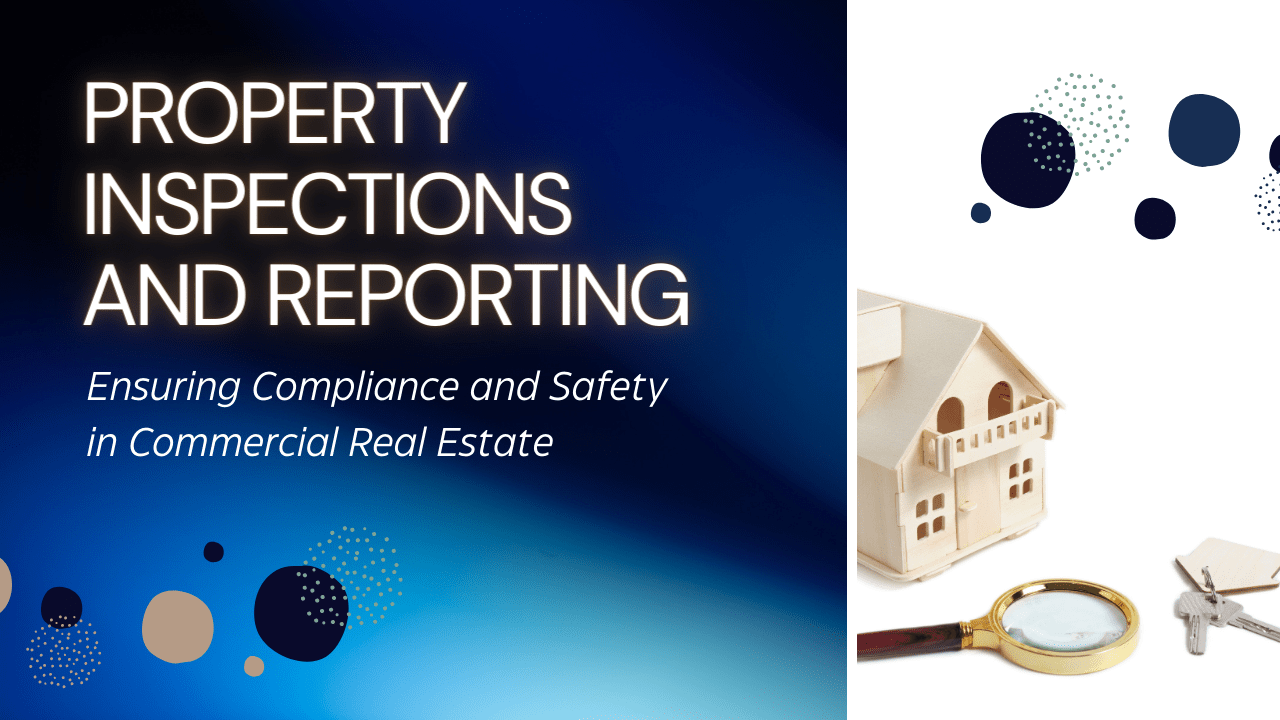Investing in Southern California commercial real estate can be an attractive proposition for many property investors due to its potential for high returns. Whether you’re looking to diversify an existing portfolio of property or you’re completely focused on the commercial market, there are a lot of great reasons to invest.
At Bell Properties, we’ve been managing spaces for our commercial investors for years, and we can tell you something that you probably already know: with great opportunity comes great responsibility. Yes, there’s a lot of opportunity to earn great income as a commercial property owner. There’s also a lot that’s required of you.
Today, we’re talking about how you protect your building and your tenants. It’s imperative that the safety and compliance of tenants and buildings are taken seriously. It’s non-negotiable. A building that isn’t safe won’t help you earn money; it will end up costing you a lot more than you can imagine. You don’t want to put off repairs, preventative services, or inspections.
As commercial property managers in Southern California, Bell Properties understands the importance of property inspections and reporting. We work with our owners and investors to ensure that the property is up to code, safe for tenants and their customers, and in line with all regulatory standards.
Let’s dive into the importance of property inspections and reporting in California’s commercial real estate industry.
Codes and Compliance
Complying with all state, federal, and local safety codes is the first step in ensuring your commercial rental property is safe and ready to be occupied.
Here are some of the most important regulations you need to comply with:
California Building Codes for Commercial Real Estate
The California Building Codes (CBC) is an excellent starting point. This is the primary set of codes published by the Building Standards Commission and followed by local enforcement agencies in California. The CBC has several regulations within three main categories:
Administrative
Building
Fire
Compliance with these codes affects every aspect of any commercial property from electrical, plumbing, and structural systems to safety features like fire alarms and sprinklers. Investors need to keep in mind all the necessary requirements, especially before purchasing a property or beginning any construction or renovation project.
ADA Compliance
Another significant compliance aspect that is critical in keeping your Southern California commercial property safe and on the right side of the law is the Americans with Disabilities Act (ADA). This is a federal law you are likely familiar with already, but from the standpoint of your rental property, you need to understand that it requires you to provide reasonable accommodations and accessibility to people with disabilities.
Any modifications or alterations in a commercial property must comply with the regulations outlined in the ADA. These include wheelchair ramps, doorways, restrooms, parking spaces, etc.
Failing to comply with the ADA code can result in hefty penalties and lawsuits against your business. People of all abilities need to be able to access your commercial property.
Title 24 - Energy Efficiency Standards
Title 24 is the standard for energy efficiency, adopted by California for the commercial real estate industry. The regulations cover all aspects of the property, from lighting and windows to heating and ventilation. Title 24 has become a driving force in the green building industry, focusing on the reduction of emissions, energy bills, and environmental standards in commercial buildings.
We expect that environmental regulations and sustainable requirements are only going to get stricter. Make sure you’re starting strong with Title 24 compliance.
OSHA Regulations
Every commercial property must align with Occupational Safety and Health Administration (OSHA) regulations. OSHA is a federal agency that ensures the safety of the workers in every business or industry. For commercial real estate, OSHA has set specific requirements for the safety of construction workers, including their proper training, protective gear, and fencing, among other things. When you’re having work done at your commercial property, whether it’s ongoing maintenance or renovations, make sure to follow all OSHA regulations to avoid penalties and ensure worker safety. Your tenants will have their own OSHA requirements for their employees.
Code compliance plays a vital role in leasing commercial real estate. Smart tenants will always request compliance certificates before they decide to lease space in your property. Keep these certificates up to date and accessible. A compliance certificate proves that the property is up to the required code standards. Investors must make sure their properties comply with all codes and regulations to avoid legal issues in the long run.
Understanding the Need for Property Inspections and Reporting
You won’t know you’ve slipped out of compliance unless you’re conducting routine inspections of your California commercial property. At Bell Properties Commercial Real Estate, we make it a point to get inside the properties Bell Properties manages, to check for compliance and also to ensure there aren’t any potential dangers that can threaten the condition and value of your investment or the tenants who occupy that space.
Here’s how our inspections and our careful reporting helps commercial owners:
Inspections and Reporting Protect You as the Property Owner
Investing in commercial real estate is a significant financial undertaking, and it always comes with plenty of risk and liability, like any investment. This is all the more reason to make property safety and regulatory compliance a priority. Not only are you protecting the tenants who are renting space inside of your building, you’re also protecting yourself.
Regular property inspections and reporting can help maintain the value of the property for the long-term. Inspections identify issues that can be handled with routine maintenance or repairs or even upgrades, which ultimately prevents more significant problems from developing, thus saving you time and money.
Less Risk of Lawsuits and Penalties
Another essential reason to conduct regular property inspections is to ensure compliance with all the regulations and codes we mentioned - as well as others that may be specific to your California commercial property location and your property type. Non-compliance can result in hefty fines, penalties, and legal proceedings. Commercial properties are regulated by various government bodies, and ignoring compliance standards can make property owners liable for environments that are deemed unsafe for tenants or visitors. Thus, it’s imperative that commercial property owners stay up to date with local regulations, licensing, and permits.
Keeping Commercial Tenants Safe
The safety of tenants should be a top priority, and inspections and reports are essential to ensure commercial properties are safe for the people who are coming and going at your property every day. Commercial spaces are regularly occupied by workers, clients, and customers, making safety a crucial aspect of the property. Inspections can reveal safety concerns that, if left unchecked, can jeopardize the well-being of tenants. Issues can range from fire safety hazards, electrical issues, rodent infestations, or other structural issues.
There’s also tenant retention to think about. You want to make sure your commercial tenants are happy and profitable in the space you’re renting them. Building inspections can help improve tenants' satisfaction by identifying areas in the property that need attention. Conditions of the property like poor lighting, lack of dust control, and ventilation issues can impact tenant health and comfort. At Bell Properties, we provide property owners with detailed inspection reports, and those can be used to make upgrades or changes that positively impact tenant satisfaction. Thus, regular property inspections are beneficial to keeping tenants happy and satisfied.
Property Inspections are Cost-Effective (Repairs are, too!)
We talk to a number of owners who believe that regular inspections can be an additional expense which they don’t have time for. However, in the long run, regular inspections and reports can save owners money. We try to stress this, and remind hesitant owners that hiring a Southern California commercial property management company like Bell Properties can save them time and money while delivering peace of mind and protection.
Inspections are intended to identify potential problems, making it easier for property owners to prioritize and invest in small repairs as necessary. Property repairs can be expensive, but they become a lot more affordable when they’re caught early before they become larger problems.
Property inspections and reporting are critical components of commercial real estate maintenance. Before you invest in commercial property, make sure you understand the California real estate code and have a plan in place for following the law and keeping your property safe. Compliance is crucial to avoid litigation and comply with state regulations.
These inspections provide protection not only to property owners but to tenants as well. They help ensure regulatory compliance, uncover potential problems, and make the property a safer, more secure place for everyone. Regular property inspections and reporting are cost-effective, making it easier to detect issues earlier, saving money in the long run.
 If you’re not sure about how to approach your own commercial property compliance or you feel like you’re a bit behind the curve, we can help. It’s crucial to prioritize inspections and analyze reporting, and we can provide resources for both. Contact us at Bell Properties Commercial Real Estate.
If you’re not sure about how to approach your own commercial property compliance or you feel like you’re a bit behind the curve, we can help. It’s crucial to prioritize inspections and analyze reporting, and we can provide resources for both. Contact us at Bell Properties Commercial Real Estate.



